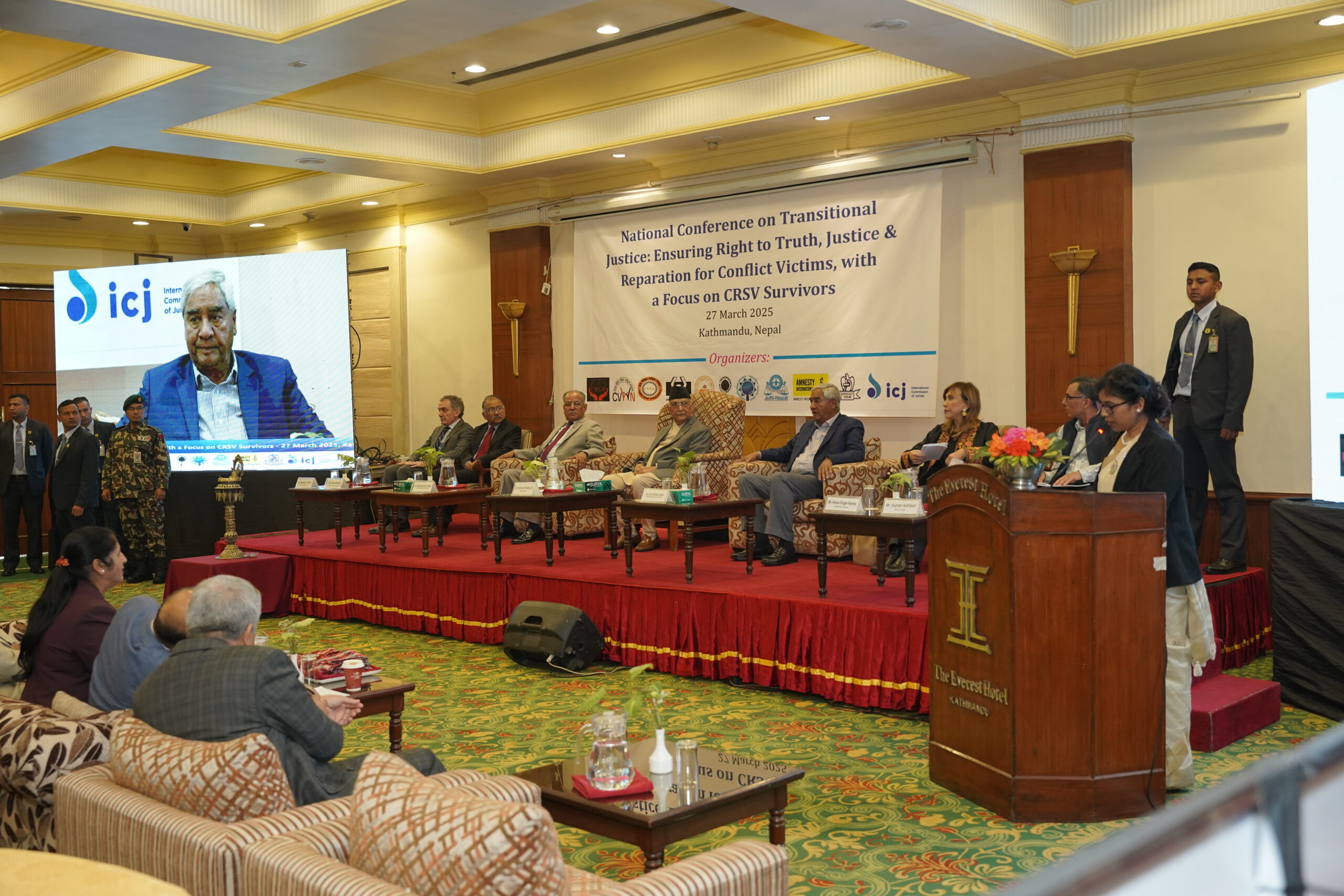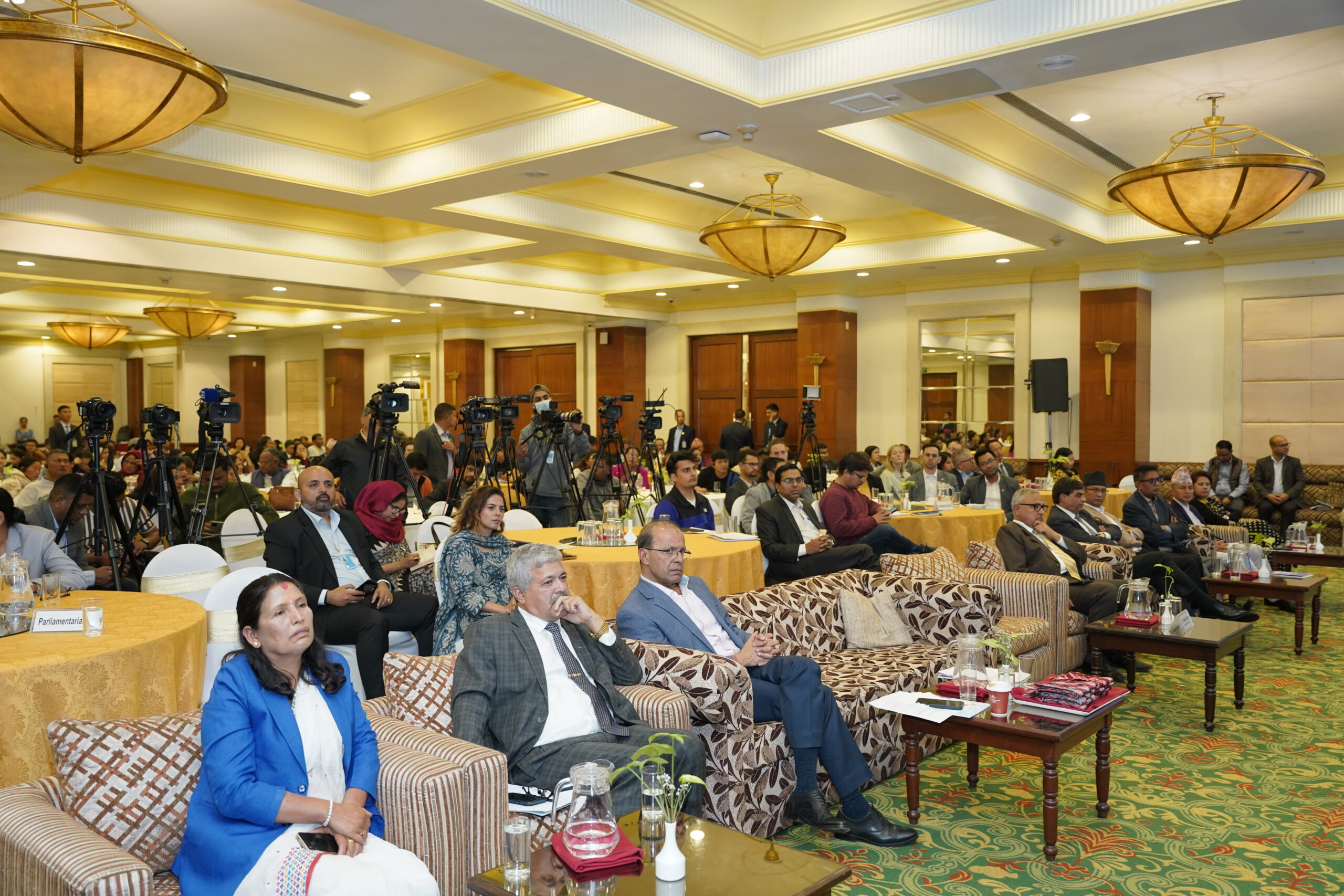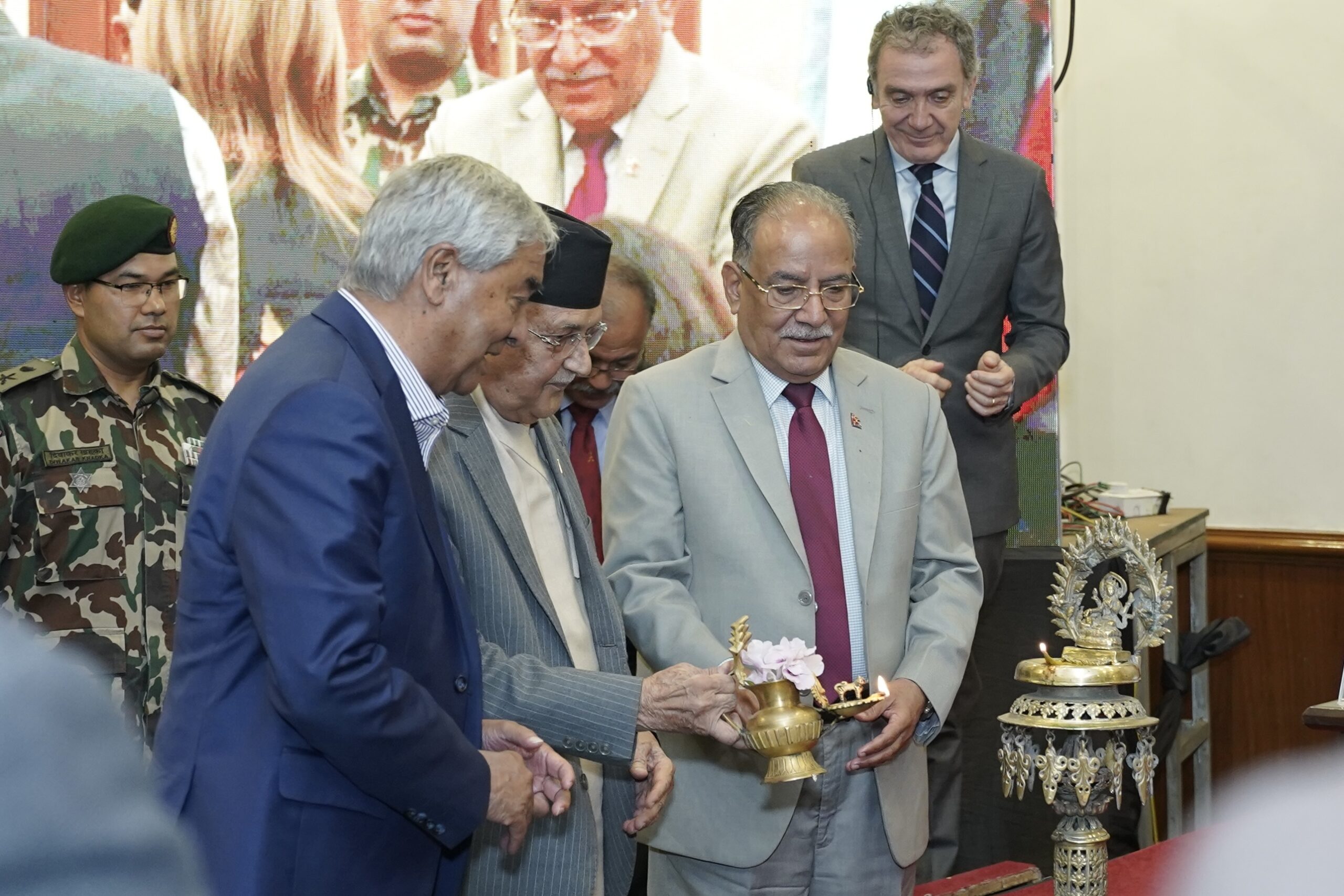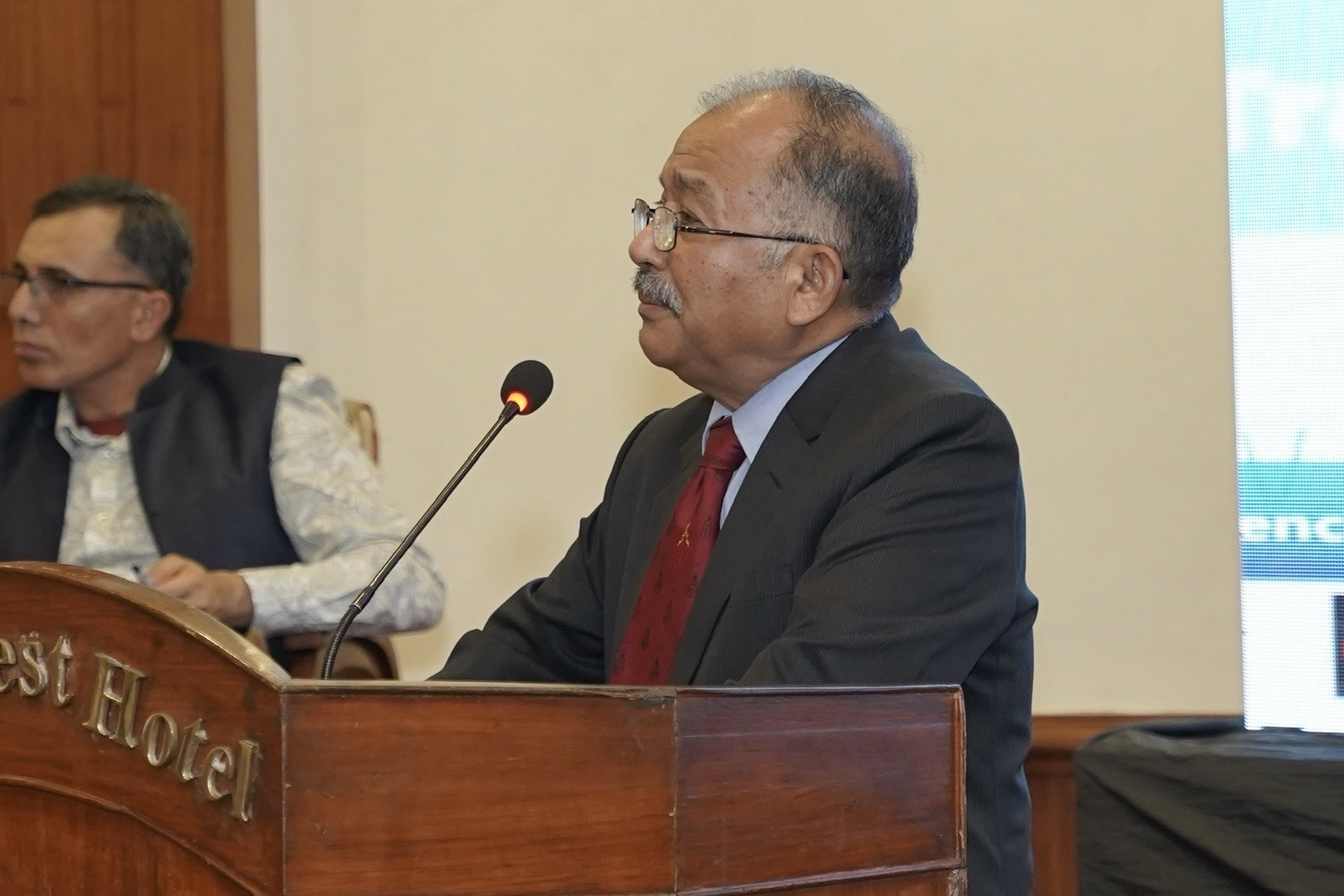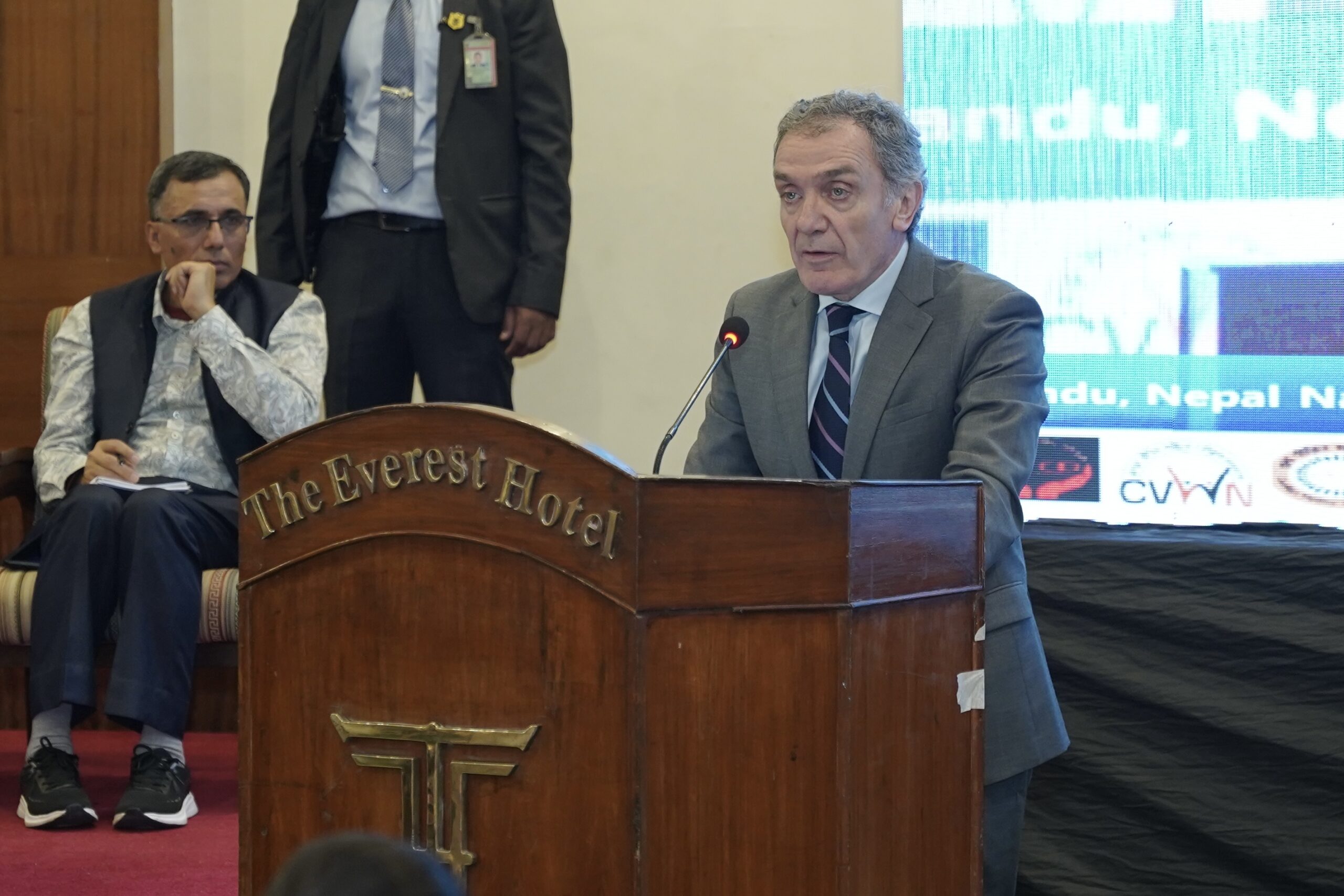Nepal’s leading political authorities including the Prime Minister, together with civil society groups, have pledged to redouble their efforts to improve and implement effective transitional justice mechanisms and procedures to ensure accountability and reparations for the many victims and survivors of the country’s decade long armed conflict from 1996-2006.
The commitments were expressed on 27 March at a National Conference on Transitional Justice convened in Kathmandu by the International Commission of Jurists (ICJ) in collaboration with the nine local victims led Civil Society Organizations and human rights groups.
The event, focusing on the right to truth, justice and reparations, was attended by some 250 participants, including the Prime Minister KP Sharma Oli; two former prime ministers, leaders of political parties, and other former ministers; parliamentarians, senior government officers; diplomats; human rights defenders; and victims and survivors and their family members.
The conference identified strategies to improve transparency and effectiveness in the transitional justice process, in a manner fostering accountability and trust. It also explored ways to design effective remedies and reparations in a victim-centered manner, addressing the specific needs, challenges, and aspirations of survivors. Particularly critical was the urgency of making the TJ commission operational and functional to address the needs of victims and survivors.
Addressing the Conference, Prime Minister K P Sharma Oli expressed a commitment
“to creating conditions that prevent the recurrence of such conflicts in the future”. He added, “It is our responsibility to lead the transitional justice process and move forward with determination, fully embracing the victims’ struggle for justice. This can only be achieved with the commitment of all stakeholders.”
The Prime Minister further emphasized,
“The government is determined to ensure that conflict victims and their families receive justice without further delay. Those responsible for serious human rights violations must be held accountable, and the truth-telling and reconciliation process must be carried out without undue influence.”
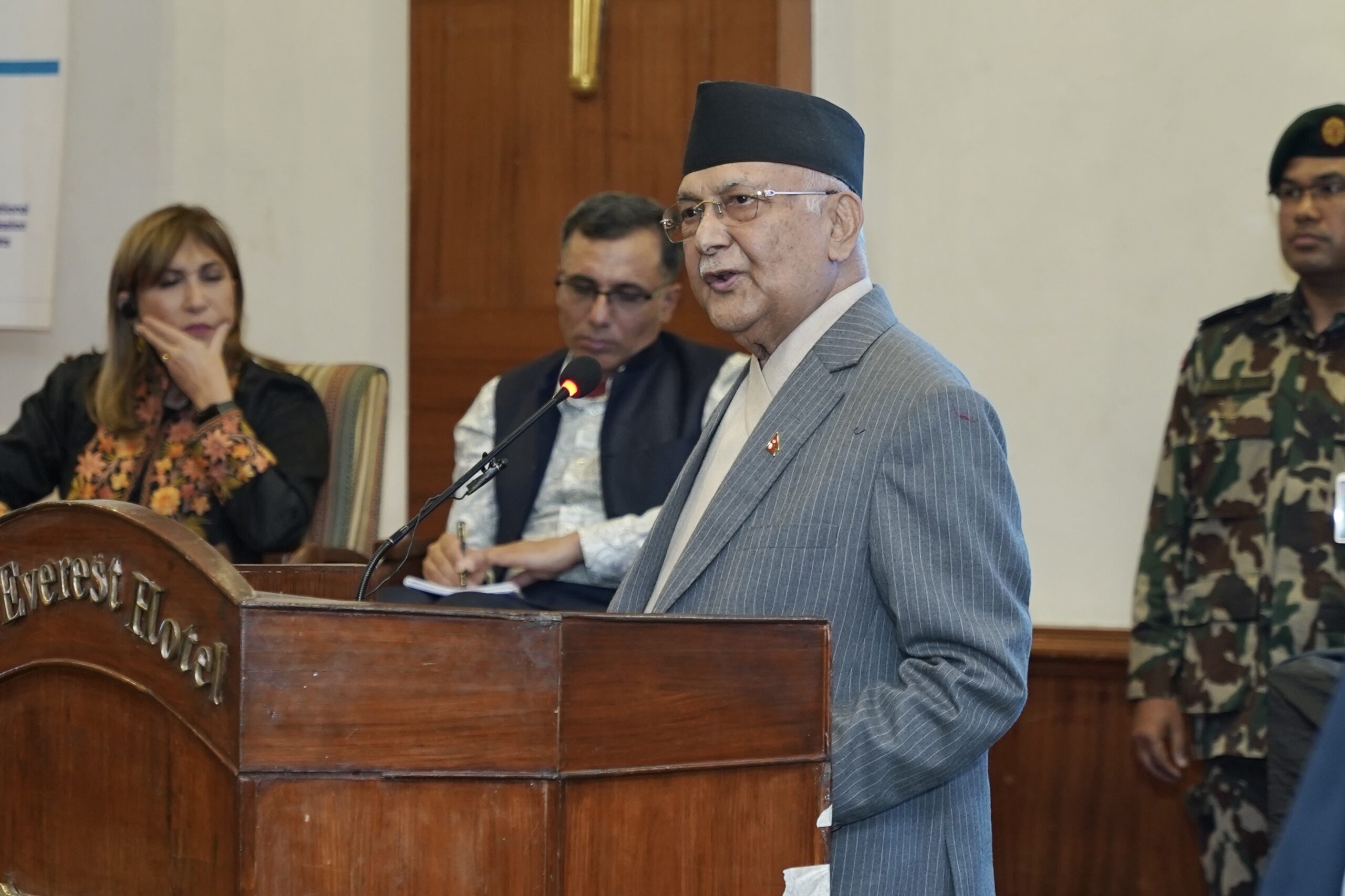
Former Prime Ministers Sher Bahadur Deuba and Pushpa Kamal Dahal, describing Nepal’s transitional justice process as a homegrown initiative, reaffirmed their commitment to advancing the process, prioritizing the needs of victims, and ensuring accountability for the most serious human rights violations and abuses. They also stressed the need to separate the transitional justice (TJ) process from other political disagreements among parties, ensuring that the progress made in recent months is not derailed and that momentum is effectively utilized to move the process forward.
ICJ Commissioner and former Supreme Court Chief Justice Kalyan Shrestha, reflecting on Nepal’s 18-year journey to transitional justice, stressed;
“There are concerns about failure to include certain international law principles in the amended TJ law. The government must commit politically to address these concerns and prioritize victims’ rights… If we pride ourselves on a homegrown TJ process, the billion-dollar question is: what does home-grown mean, if politics is placed above justice?”
According to ICJ Secretary General Santiago Canton:
“Transitional justice is inherently political in nature, but it cannot come at the expense of international legal obligations. The framework must adhere to international human rights law, humanitarian law, and international criminal law. Upholding these standards is crucial not only to safeguard the rights of victims but also to ensure the broader credibility and effectiveness of the entire process.”
The panel also heard from ICJ Senior Legal Adviser Dr. Mandira Sharma, who emphasized:
“We have enacted laws and established commissions in the past, but they all failed. Learning from these experiences, it is crucial to appoint experienced, credible, and independent individuals to these commissions through a fair and transparent process. The success of the process largely depends on the legitimacy and credibility of the commissions.”
Background
Eighteen years after Nepal’s Comprehensive Peace Agreement (CPA), the commitment to truth, justice, and reparations for victims of the 1996-2006 conflict remains unmet. In 2014, the TRC Act was passed to establish the Truth and Reconciliation Commission (TRC) and the Commission of Inquiry on Enforced Disappearances (CIEDP). However, in 2015, the Supreme Court declared certain provisions of the Act unconstitutional and ordered the government to amend them.
In August 2024, the TRC Act was amended, offering some improvements but leaving challenges. The Act provides a three-month window for victims of CRSV previously excluded from earlier complaint collection processes to register their cases. While the time frame for registration remains contentious, this provision offers CRSV survivors a long-overdue avenue for recognition and justice within Nepal’s TJ framework. To date, 314 CRSV cases have been officially registered with the TRC, but this figure is likely a small fraction of the actual number of survivors. Many survivors remain excluded and vulnerable to further harm without guarantees of safety and security. In this context, this conference focused to explore solutions to ensure truth, justice, and reparation for CRSV victims, while preventing future violations.
The conference featured three discussion sessions
- First Panel: Nepal’s transitional justice process: Where are the stumbling blocks?
- Second Panel: Right to reparation of survivors of CRSV: How to make it possible in practice?
- Third Panel: What needs to be done to make the TJ process realized in Nepal?
The discussants included the PM’s Transitional Justice Adviser, former ministers, parliamentarians, victims and their families, senior government officials, human rights activists, lawyer and justice sector actors.
These discussions also focused on the discrimination and challenges faced by CRSV survivors, as well as ways in which they can actively participate in the design and implementation of reparation policies and plans that address their needs and uphold their dignity.
Contact
Dr. Mandira Sharma, ICJ Asia and the Pacific Programme, Senior International Legal Adviser, t: +9779851048475, e: mandira.sharma@icj.org
Laxmi Pokharel, ICJ Asia and the Pacific Programme, Legal Adviser, t: +9779851047588, e: laxmi.pokharel@icj.org
Kashiram Dhungana, ICJ Asia and the Pacific Programme, Legal Adviser, t: +9779851226964, e: kashiram.dhungana@icj.org
Resources
A Brief Review of Nepal’s Transitional Justice (TJ) Law, 2024
Nepal: New Transitional Justice Law a Flawed Step Forward
Nepal: Transitional Justice Bill needs to protect victims, not abusers
Briefing paper on Nepal: Transitional Justice Mechanisms with a Gender Perspective
